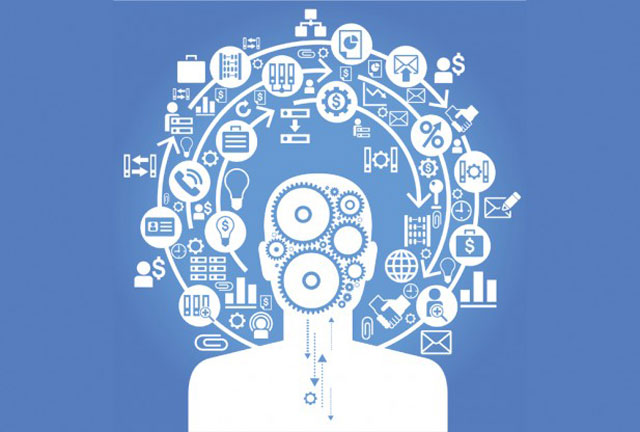
This is hardly an idle question considering that cognitive decline is a nearly universal feature of aging. Starting at age 55, our hippocampus, a brain region critical to memory, shrinks 1 to 2 percent every year, to say nothing of the fact that one in nine people age 65 and older has Alzheimer’s disease. The number afflicted is expected to grow rapidly as the baby boom generation ages. Given these grim statistics, it’s no wonder that Americans are a captive market for anything, from supposed smart drugs and supplements to brain training, that promises to boost normal mental functioning or to stem its all-too-common decline.
The very notion of cognitive enhancement is seductive and plausible. After all, the brain is capable of change and learning at all ages. Our brain has remarkable neuroplasticity; that is, it can remodel and change itself in response to various experiences and injuries. So can it be trained to enhance its own cognitive prowess?
The multibillion-dollar brain training industry certainly thinks so and claims that you can increase your memory, attention and reasoning just by playing various mental games. In other words, use your brain in the right way and you’ll get smarter.
A few years back, a joint study by BBC and Cambridge University neuroscientists put brain training to the test. Their question was this: Do brain gymnastics actually make you smarter, or do they just make you better at doing a specific task? For example, playing the math puzzle KenKen will obviously make you better at KenKen. But does the effect transfer to another task you haven’t practiced, like a crossword puzzle?
The researchers recruited 11,430 viewers on the popular BBC online science program “Bang Goes the Theory” for six weeks of brain training, with 10-minute sessions three times each week. Subjects were placed at random in three groups: one experimental group playing games of reasoning and testing problem-solving skills; a second experimental group that emphasized tests of attention, short-term memory and math skills that were typical of commercially available brain-training games; and a control group that performed the equivalent of Google searches by answering obscure test questions.
All subjects took a benchmark cognitive test, a kind of modified IQ test, at the beginning and at the end of the study. Although improvements were observed in every cognitive task that was practiced, there was no evidence that brain training made people smarter. Scores on the benchmark test, for which subjects could not train, did not significantly increase at the end of the study.
There was, however a glimmer of hope for subjects age 60 and above. (Full disclosure: I’m 59, so I’ve got skin in this game.) Unlike the younger participants, older subjects showed a significant improvement in verbal reasoning, one of the components of the benchmark test, after just six weeks of brain training, so the older subjects continued in a follow-up study for a full 12 months.
If your IQ is off the charts, this is where you belong
Results of this follow-up study, soon to be published in a peer-reviewed journal, generally show that continued brain training helps older subjects maintain the improvement in verbal reasoning seen in the earlier study. This is good news because it suggests that brain exercise might delay some of the effects of aging on the brain.
OF course, skeptics might argue that older people are already on a downward cognitive trajectory, so their improvement with brain games is not actual enhancement so much as a slowing in the decline of mental acumen. Call it what you will, but it still sounds fine to me.
There are also easy and powerful ways to enhance learning in young people. For example, there is intriguing evidence that the attitude that young people have about their own intelligence — and what their teachers believe — can have a big impact on how well they learn. Carol Dweck, a psychology professor at Stanford University, has shown that kids who think that their intelligence is malleable perform better and are more motivated to learn than those who believe that their intelligence is fixed and unchangeable.
In one experiment, Dr. Dweck and colleagues gave a group of low-achieving seventh graders a seminar on how the brain works and put the students at random into two groups. The experimental group was told that learning changes the brain and that students are in charge of this process. The control group received a lesson on memory, but was not instructed to think of intelligence as malleable.
At the end of eight weeks, students who had been encouraged to view their intelligence as changeable scored significantly better (85 percent) than controls (54 percent) on a test of the material they learned in the seminar.
7 ways you may be ruining your IQ
These findings appear to have profound implications for educating young people because they suggest that a relatively simple intervention — teachers encouraging their students to think of their own cognitive capacity as a quality that they can improve — can have a powerful effect: enhancing learning and motivation.
(The adolescent brain is more malleable than the adult brain, so whether Dr. Dweck’s findings might hold for adult learning is an open and intriguing question.)
Perhaps it is not the same as increasing innate intelligence, but helping young people hit their intellectual potential is critically valuable — and apparently not so difficult to do.
So we can clearly enhance learning, even if mental gymnastics won’t make us smarter. Don’t worry: there is still more you can do for your brain. It turns out that physical exercise can also improve cognitive function and promote the growth and creation of neurons.
Mice, for example, that are allowed to run on a wheel for just 45 days had more neurons in their hippocampus, a brain region critical for memory formation, than sedentary mice.
In humans, one recent study randomly assigned a group of older people with mild cognitive impairment to three groups: one that engaged in resistance training, one that did aerobic training and a control group that did balance and tone exercises. Random selection ensures that any observed differences between the three groups is a result of the type of exercise, not any other characteristics of the subjects. The researchers found that while both resistance and aerobic training groups improved equally on spatial memory, only the women who did aerobic exercise improved on verbal memory, suggesting that different types of exercise might have specifically different cognitive benefits.
Also, a new study found that women who did weight training twice a week for a year had less brain shrinkage than those who trained once a week or did stretching exercises, though the cognitive significance of this effect is not yet clear.
How might exercise exert these effects? Intriguingly, exercise in humans and animals increases the level of a protein called brain-derived neurotrophic factor, or BDNF, in the blood and brain. BDNF promotes the growth and formation of new neurons, and it may be responsible, in part, for a remarkable effect of exercise on the brain: an increase in size of the hippocampus that is linked with improved memory.
author is clearly not aware of studies documenting significant increases in IQ with the practice of...
Conversely, adverse experiences like major depression can lower BDNF levels and are associated with hippocampal shrinkage, a phenomenon that helps explain some of the cognitive impairments that are a hallmark of depression. Aside from making people feel better, antidepressants can block the depression-induced drop in BDNF, so these drugs are, in a sense, neuroprotective.
I know, exercise is work, so you undoubtedly want to know if there is a smart pill, like Adderall or Ritalin, that will do the trick. Well, there is little question that these stimulants increase focus and make the world feel more interesting by releasing dopamine in key brain circuits. But when it comes to their effects on memory and learning, the data are mixed.
Poor sleep affects IQ of kids
The only consistent cognitive benefit of stimulants is their effect on the consolidation of long-term memory, meaning that they strengthen the ability to recall previously learned information — an effect that might confer some advantage in the real world.
Some worry that stimulants might somehow boost efficiency at the cost of creativity, but research suggests otherwise. The concern reflects a common notion of creativity, namely that you need to be a little unfocused to think in a synthetic, novel way, and that stimulants will impede this mental process.
For example, one study compared two groups of healthy young adults who were randomly assigned to Adderall or a placebo. Both groups were give four different tests of creative thinking. Adderall enhanced performance on one of the tests, the embedded image test, which requires subjects to reassemble a whole image from a scrambled one.
Still, these are subtle effects, and there is no evidence that any prescription drug or supplement or smart drink is going to raise your IQ
But there is one thing that doesn’t require a prescription that seems to help preserve cognitive fitness: other people.
There is strong epidemiologic evidence that people with richer social networks and engagement have a reduced rate of cognitive decline as they age. Lisa F. Berkman, a professor and social epidemiologist at the Harvard School of Public Health, and other colleagues examined data from the Health and Retirement Study, which followed a nationally representative sample of nearly 17,000 subjects age 50 and older from 1998 to 2004. Subjects were cognitively assessed with a simple word-recall test at baseline and then at two-year intervals, and social integration was gauged by contact with family, friends and other social activities.
The results showed that people with the highest level of social integration had less than half the decline in their cognitive function of the least socially active subjects. Also, the cognitive protective effects of socializing were greatest among subjects with fewer than 12 years of education.
Of course it’s possible that poor memory itself might cause social isolation, so the researchers reanalyzed the data, removing subjects with the worst baseline cognitive function. The results were unchanged, making reverse causation an unlikely explanation for their finding.
In the end, you can’t yet exceed your innate intelligence. But that seems less important than the fact that there is much that you can do to reach your cognitive potential and to keep it. Forget the smart drugs and supplements; put on your shorts and go exercise. If you’re 60 and up, consider brain training. And do it all with your friends.
This article originally appeared on The New York Times, a partner of The Express Tribune























COMMENTS (1)
Comments are moderated and generally will be posted if they are on-topic and not abusive.
For more information, please see our Comments FAQ